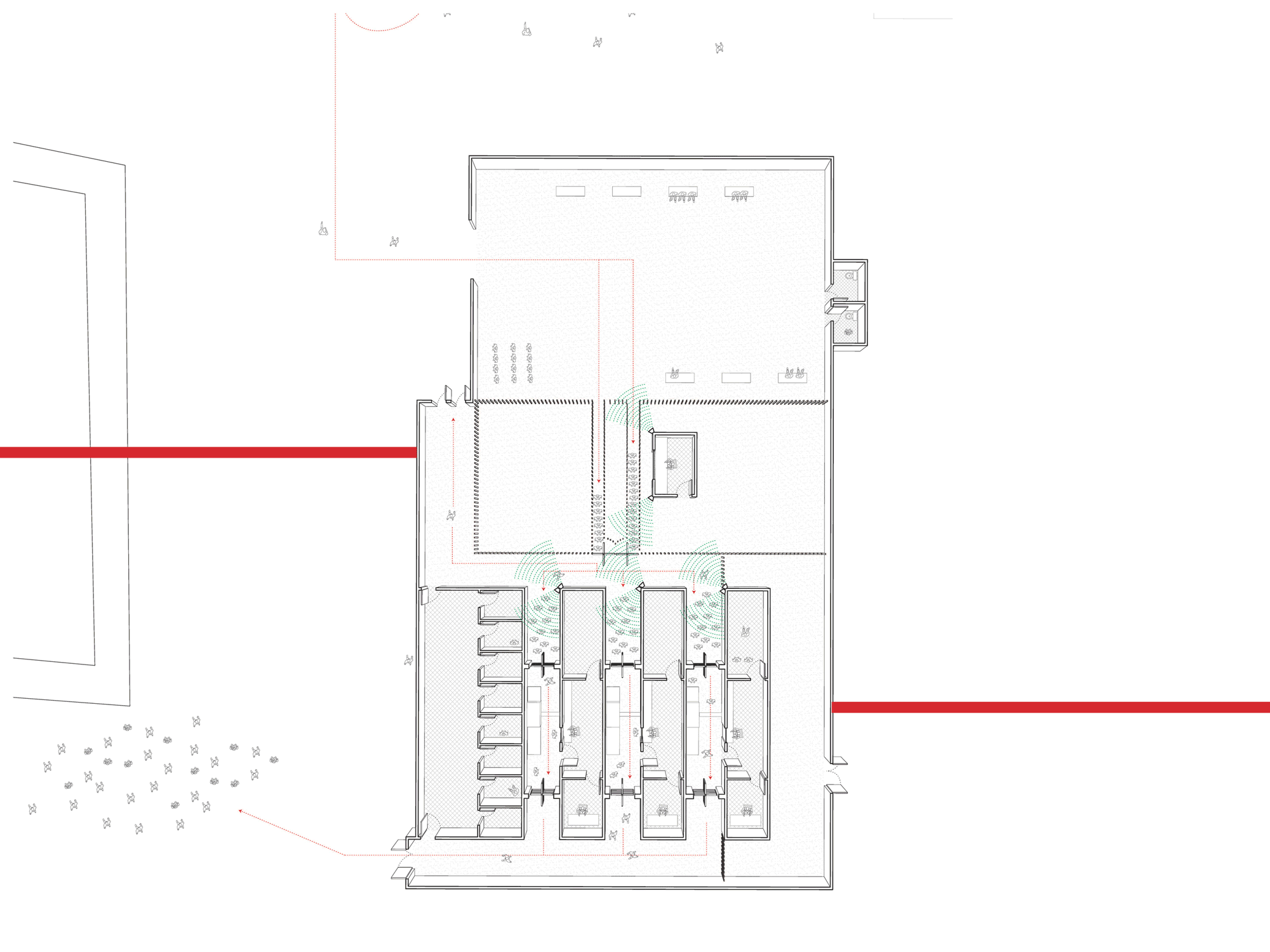Breaching the divide
An Inquiry into Border Passage
In a world of increasing nationalist politics that belie economic codependence and efforts directed at global sustainability, the boundaries surrounding nations emphasize their differences between cultures, religions and territories rather than common purpose. The wall that divides intertwining borders of Israel and the West Bank is such a division. Palestinians and Israelis pass along and cross through the wall everyday, engage in trade, and lay claim and pray in the same ancient, religious places. But the wall separates, marking stark difference in resources, access and freedom of movement. This project is an inquiry into the existing passage through the threshold that currently separates Israelis from Palestinians.
By framing the mundane actions of border passage through dramatic scenes, this architecture can reveal themes of religion, resources, and surveillance while also highlighting the imbalance of the conflict, with an architecture equally absurd.
For thousands of years, this land has been considered sacred to Islam, Judaism, and Christianity for its appearance in sacred texts and events.
Following the political establishment of Israel in 1948 and through decades of negotiating, Palestinian land, has transformed into a carved out nation made up of hundreds of Palestinian enclaves surrounded by Israeli settlements, infrastructure, and military presence. After decades of violent tensions, Israel built a wall around its entire border. This thesis claims that the existing border wall today defines Israel and Palestine as two separate independent nations.
The system of passage through the threshold grants freedom of movement to citizens with the correct form of identification. For Israelis, the wall and checkpoint serve as a means of security, surveillance and control. For Palestinians, it serves as another obstacle and reminder to the conflict.
Zooming into an existing border checkpoint between Jerusalem and Ramallah, the checkpoint acts as a door between nations and can be broken down into several key spaces that serve Israeli military and Palestinian citizens who wish to pass through. Palestinians going into the checkpoint are brought through the waiting room, the line, the body check, the bag check, and the ID check before being allowed to enter Israel.
By investing the wall with the programmatic elements of the checkpoint, the new crossing can serve a greater purpose.
Inspired by historically significant representations of eden, purgatory, inferno, and Utopia… the form of this absurd checkpoint wrestles with both spiritual and religious concepts to create a meaningful response.
The center in Islamic and Jewish culture is the most holy point, the center of god’s existence and represents the all-encompassing nature of god.
By filling the circle with a garden-like-paradise and walling it off from the outside, the circle takes on the meaning of the Garden of Eden. By taking away the center, the void within becomes a signifier to the absence of Eden. Lifting the trees of Eden onto columns, the concentric grid of olive trees is meant to create a mirage from the outside. Placing points along the circle opens up moments, which can become functional program for this absurd border crossing.
Finally, overlaying both populations on two separated circulation routes moving in opposite directions, the circle’s spatial overlaps reveal the complexities of living through the conflict.
Cutting through the center of the void reveals the physical emptiness that resulted from this centuries long conflict, which cannot be refilled after the fact. Here, an aqueduct dumps water, a mutually essential resource for both sides, into the pit.
Beginning with the waiting room, around the void to the ID check and exit, the mundane scenes of the checkpoint are translated into sanctifying actions that recall observant religious architecture and traditions.
The Waiting Room
The waiting room, a shrine for catharsis, a place of refuge from the harsh reality becomes the first step to making contact with the other side.
Garden of Exile
Passing through the elevated columns of eden, Palestinians stumble upon hidden oases, spaces for them to partake in ritualistic cleansing.
Above, at the level of the Olive trees, some columns turn towards Mecca for daily prayer.
While Unannounced to Palestinians, Israeli points of surveillance infiltrate these spaces of ablution from below, architecturalizing the intricate spatial relationships that both sides subject each other to.
The bag check. The conceptualization of this space references the Jewish relationship with the Wailing Wall. Wishes are written on notes, placed in the wall, and never seen again.
In this absurd checkpoint, any prohibited items are placed in the opening of the bag check and dropped into the fire as sacrificial offerings.
In this case, Israeli’s viewing from below see items falling to the fire without seeing the people they belonged to.
The body check is the first place where Israeli’s and Palestinians are in full view of each other. The relationship between observer and observed is revealed in a dramatic panoptic space. Collectively as silhouettes peering down onto those passing through,
Israeli soldiers who would otherwise exist in watchtowers are exposed to the perpetual light.
And lastly, the point of contact. Taking from the annunciation paintings which began this project, the two figures meet in the light, just as the angel Gabriel descended from the heavens to meet the Virgin Mary.
An Israeli soldier appears out of the darkness and into the light to check the identification of a Palestinian citizen who wishes to return to Jerusalem.
Here in full view, the central void is revealed in its entirety for both sides to anguish. The void, accompanied by the layers of spaces that wrap this absurd border crossing, serve to remind us of the conflict, everything lost, and everything still necessary for peace to exist.



























